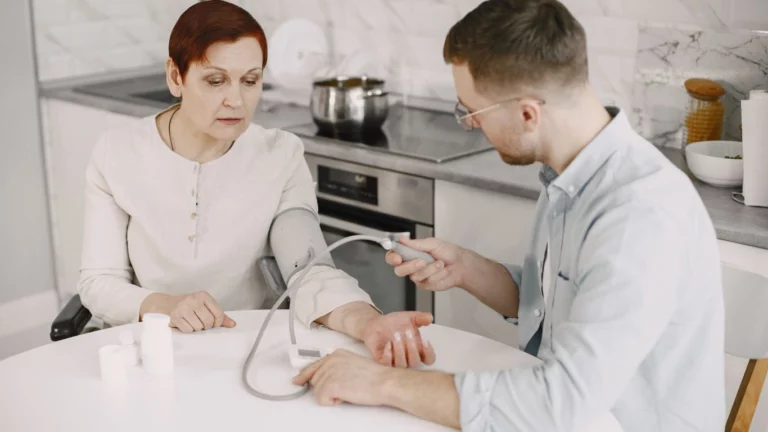Can Rheumatoid Arthritis Cause Vision Problems? Here’s What You Need to Know
Rheumatoid arthritis (RA) is a condition that affects your joints, but did you know it can also mess with your eyes? If you’ve been living with RA, you might be wondering if your vision could be at risk too. Well, the short answer is yes—it can! But don’t worry, it’s not a given, and there are ways to keep your eyes safe. In this article, we’re going to dive into how RA can impact your eyes and what you can do about it.
What Is Rheumatoid Arthritis?
If you’re already familiar with RA, you know it’s an autoimmune condition where your immune system attacks your joints, causing pain, swelling, and stiffness. Over time, it can even lead to joint damage. But, RA isn’t just about the joints—it can affect other parts of your body too. In fact, some people with RA experience issues with their eyes, skin, lungs, and even their heart. Yikes, right?
How Does RA Affect Your Eyes?
So, how does RA get into the mix when it comes to your vision? Well, there are a few ways that RA can cause vision problems:
1. Dry Eyes (Sjögren’s Syndrome)
One of the most common eye problems people with RA face is dry eyes. This happens when the tear glands aren’t working properly, which can lead to irritation, redness, and a gritty feeling in your eyes. It can even cause blurry vision. This condition is often related to something called Sjögren’s Syndrome, which occurs when the body attacks moisture-producing glands, like your tear glands. You can get this condition alongside RA, so if you’re dealing with dry eyes, it might be worth talking to your doctor about it.

2. Inflammation in the Eye
RA can cause inflammation in different parts of your eye, which might sound a bit scary. One common issue is iritis (inflammation in the iris) or uveitis (inflammation in the uveal tract). These conditions can cause eye redness, pain, sensitivity to light, and blurry vision. If you notice any of these symptoms, you should get checked out ASAP to prevent long-term damage.

3. Increased Risk of Glaucoma and Cataracts
There’s also a bit of a connection between RA and eye conditions like glaucoma and cataracts. People with RA may be at a higher risk for these because the medications they take to manage RA can sometimes have side effects that affect the eyes. For example, certain drugs used to treat RA, like steroids, can increase the risk of developing cataracts. Regular eye exams are key here to catch any issues early.
Symptoms to Watch For
If you’re living with RA, it’s smart to keep an eye (pun intended!) on your vision. Here are some symptoms that could signal something’s wrong:
- Dry, itchy, or burning eyes: This can be a sign of Sjögren’s syndrome.
- Pain or redness in the eye: This could mean inflammation like uveitis or iritis.
- Blurred vision: This might be caused by inflammation or other conditions related to RA.
- Sensitivity to light: If bright lights are bothering you more than usual, it’s worth mentioning to your doctor about it.

How to Protect Your Eyes When You Have RA
Taking care of your eyes is important, especially when you have a condition like RA. Here’s how you can stay on top of it:
- Regular Eye Exams: The best way to catch any potential issues is by seeing an eye doctor regularly. They can check for things like dry eyes, inflammation, or early signs of glaucoma and cataracts.
- Moisturize Your Eyes: If you’re dealing with dry eyes, lubricating eye drops can help. Also, consider using a humidifier at home to keep the air from drying out your eyes too much.
- Protect Your Eyes from UV Rays: Wearing sunglasses that block UV rays can help protect your eyes from further damage, especially if you’re dealing with inflammation or cataract risk.
- Talk to Your Doctor About Medications: Some RA medications can affect your eyes, so it’s important to chat with your doctor about your treatment plan. If you’re on steroids or other meds that might increase your risk of eye issues, they might be able to adjust your treatment.
What to Do If You Experience Vision Problems
If you start noticing any of the symptoms mentioned above—like blurry vision, eye pain, or increased dryness—don’t wait too long to get it checked out. Early detection and treatment are crucial to prevent serious damage. Your doctor or rheumatologist may work closely with an eye specialist (like an optometrist or ophthalmologist) to keep things in check.
Can RA Treatment Help with Eye Issues?
Yep, treating RA can help with eye issues too. Managing your RA with medication can reduce inflammation in your body and prevent eye-related problems from getting worse. If you’re on immunosuppressive drugs or disease-modifying antirheumatic drugs (DMARDs), they can help reduce inflammation and lower the chances of eye complications. But again, it’s all about finding the right treatment plan for you.
Conclusion
So, can rheumatoid arthritis cause vision problems? The answer is yes, but the good news is that with regular eye check-ups, proper management of RA, and the right precautions, you can keep your eyes healthy. If you’re noticing any changes in your vision, don’t hesitate to bring it up with your healthcare team—they’re there to help you manage both your joints and your eyes. Stay proactive, and your vision should stay clear!
Appendices
References
- American College of Rheumatology. (2024). “RA and Eye Health: What You Should Know.” Read Article
- National Institute of Arthritis and Musculoskeletal and Skin Diseases. (2024). “Vision and RA: Connections and Complications.” Read Article
- American Academy of Ophthalmology. (2023). “Rheumatoid Arthritis and Vision: How It Affects Your Eyes.” Read Article
FAQs
- Can rheumatoid arthritis cause dry eyes? Yes, dry eyes are a common symptom of RA, especially in those with Sjögren’s Syndrome.
- What is the link between RA and uveitis? RA can lead to inflammation in the eye, including uveitis, which causes redness and pain.
- How can I prevent eye problems while having RA? Regular eye exams, moisturizing eye drops, and UV protection can help safeguard your eyes.
- Are there any treatments for eye problems caused by RA? Yes, treating RA with DMARDs or immunosuppressive drugs can reduce inflammation in your eyes.
- Should I see an eye doctor if I have RA? Yes, regular visits to an eye doctor are essential to catch any issues early.
Disclaimer
The information provided in this article is for educational purposes only. It is not a substitute for professional medical advice, diagnosis, or treatment. Always consult your healthcare provider before making any medical decisions.
All rights reserved. © 2025 HealthUsias

Tarra Nugroho is a dedicated Nurse Practitioner with a strong foundation in family and preventive care. She brings both compassion and clinical expertise to her practice, focusing on patient-centered care and health education. As a contributor to Healthusias.com, Tarra translates medical knowledge into clear, empowering articles on topics like women’s health, chronic disease management, and lifestyle medicine. Her mission is simple: help people feel seen, heard, and informed—both in the clinic and through the content she creates. When she’s not caring for patients, Tarra enjoys weekend hikes, plant-based cooking, and curling up with a good health podcast.







